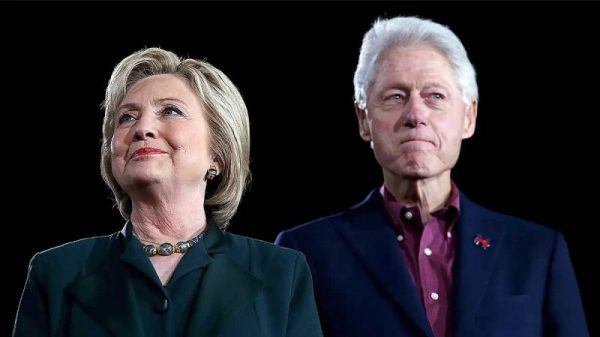In a historic decision Tuesday, the Colorado Supreme Court barred Donald Trump from running in the state’s presidential primary after determining that he had engaged in insurrection on Jan. 6, 2021.
The ruling marked the first time a court kept a presidential candidate off the ballot under an 1868 provision of the Constitution that prevents insurrectionists from holding office. The ruling comes as courts consider similar cases in other states.
The decision is certain to be appealed to the U.S. Supreme Court, but it will be up to the justices to decide whether to take the case. Scholars have said only the nation’s high court can settle the issue of whether the Jan. 6 attack on the U.S. Capitol constituted an insurrection and whether Trump is banned from running.
“A majority of the court holds that President Trump is disqualified from holding the office of President under Section Three of the Fourteenth Amendment to the United States Constitution,” the decision reads. “Because he is disqualified, it would be a wrongful act under the Election Code for the Colorado Secretary of State to list him as a candidate on the presidential primary ballot.”
Three years after the end of the Civil War, the nation in 1868 adopted the 14th Amendment, granting citizenship to those born or naturalized in the United States and guaranteeing civil rights to all Americans, including those who had been enslaved. In addition, Section 3 of the amendment barred people from office if they swore an oath to the Constitution and then engaged in insurrection. The measure was meant to keep former Confederates from returning to power.
Six Republican and independent voters from Colorado invoked the provision in a lawsuit this fall meant to keep Trump off the ballot. After a week-long trial, Denver District Judge Sarah B. Wallace in November ruled that Trump had engaged in insurrection but could remain on the ballot because she determined Section 3 does not apply to those running for president.
The voters, who filed their suit with the help of Citizens for Responsibility and Ethics in Washington, appealed the part of the ruling that kept him on the ballot, while Trump appealed the part that concluded that he had engaged in insurrection.
In separate cases, the Minnesota Supreme Court and a Michigan appeals court previously declined to remove Trump’s name from the primary ballot in those states. Meanwhile, a Texas tax consultant has gotten no traction with a string of lawsuits he has filed on the issue.
In a historic decision Tuesday, the Colorado Supreme Court barred Donald Trump from running in the state’s presidential primary after determining that he had engaged in insurrection on Jan. 6, 2021.
The ruling marked the first time a court kept a presidential candidate off the ballot under an 1868 provision of the Constitution that prevents insurrectionists from holding office. The ruling comes as courts consider similar cases in other states.
The decision is certain to be appealed to the U.S. Supreme Court, but it will be up to the justices to decide whether to take the case. Scholars have said only the nation’s high court can settle the issue of whether the Jan. 6 attack on the U.S. Capitol constituted an insurrection and whether Trump is banned from running.
“A majority of the court holds that President Trump is disqualified from holding the office of President under Section Three of the Fourteenth Amendment to the United States Constitution,” the decision reads. “Because he is disqualified, it would be a wrongful act under the Election Code for the Colorado Secretary of State to list him as a candidate on the presidential primary ballot.”
Three years after the end of the Civil War, the nation in 1868 adopted the 14th Amendment, granting citizenship to those born or naturalized in the United States and guaranteeing civil rights to all Americans, including those who had been enslaved. In addition, Section 3 of the amendment barred people from office if they swore an oath to the Constitution and then engaged in insurrection. The measure was meant to keep former Confederates from returning to power.
Six Republican and independent voters from Colorado invoked the provision in a lawsuit this fall meant to keep Trump off the ballot. After a week-long trial, Denver District Judge Sarah B. Wallace in November ruled that Trump had engaged in insurrection but could remain on the ballot because she determined Section 3 does not apply to those running for president.
The voters, who filed their suit with the help of Citizens for Responsibility and Ethics in Washington, appealed the part of the ruling that kept him on the ballot, while Trump appealed the part that concluded that he had engaged in insurrection.
In separate cases, the Minnesota Supreme Court and a Michigan appeals court previously declined to remove Trump’s name from the primary ballot in those states. Meanwhile, a Texas tax consultant has gotten no traction with a string of lawsuits he has filed on the issue.





















